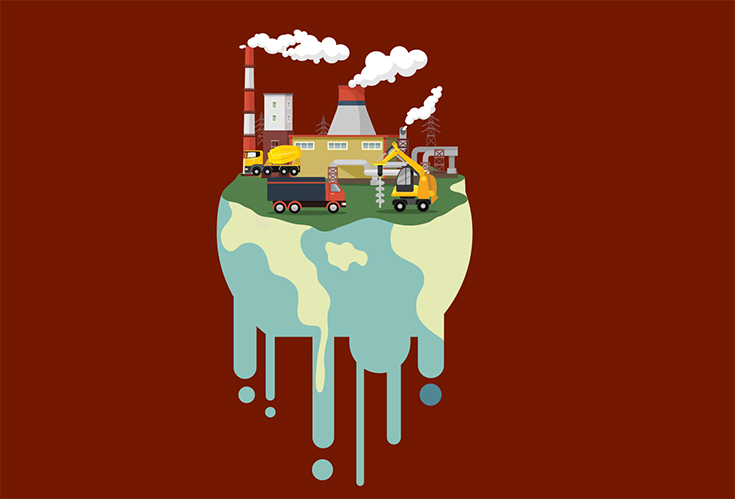European Forum on Disaster Risk Reduction to look at continuing climate challenges
Ahead of the 2018 European Forum on Disaster Risk Reduction in Rome, Rosalind Cook, Professor Sirkku Juhola and Jaroslav Mysiak take a look at the pressing need for Europe to meet the challenges of a changing climate

Gennady Kireev / 123rf
The Intergovernmental Panel on Climate Change's (IPCC) report on 1.5°C of global warming published on October 8 has major implications for Europe and disaster risk reduction. The IPPC’s findings highlight that crossing the threshold of 1.5°C could have severe impacts, including sea level rise, extreme weather events and severe damage to ecosystems. In Europe, these effects can evolve into threat multipliers on migration flows, geopolitical instability, negative impacts on infrastructure and public health or access to food and water.
This summer, Europe experienced devastating extreme weather and climate-related events, which exposed once again the vulnerability of citizens and natural ecosystems to climate variability and change. Fast and slow onset disasters are already affecting many lives and causing high economic damage and losses. In fact, climate-related disasters accounted for 77 per cent of the direct economic losses globally, which totalled US$2,908 billion. This, in turn, is having a major effect on people’s lives, with disasters pushing an estimated 26 million people into poverty each year.
Under the Sendai Framework for Disaster Risk Reduction, governments and stakeholders have recognised these challenges. The agreement defines ambitious targets on reducing their human toll and economic burden and ensuring a national strategy on disaster risk reduction is in place by 2020. There are also major efforts underway to ensure coherence on sustainable development, disaster risk reduction and climate adaptation with interrelated and consistent action plans.
However, the scale of the challenge of managing climate risk calls for much greater action. Current pledges made under the Paris Agreement (‘Nationally Determined Contributions’) are only sufficient to limit global warming to 3°C or more. This means that emission reductions are currently insufficient to avoid disastrous impacts and Europe, along with other continents, will continue to be increasingly affected by more severe and less predictable extreme events.
On November 21-23, 2018, hundreds of multi-stakeholder delegates from 55 countries in Europe will convene at the European Forum for Disaster Risk Reduction in Rome to discuss this challenge and identify concrete action to step up efforts. The Forum, organised by the Government of Italy and the UN Office for Disaster Risk Reduction, takes place every two years, to showcase inspiring action and identify regional challenges.
The Forum will examine the latest scientific evidence in Europe on climate change and identify how to ensure that efforts to manage disaster risk keep pace with the rapidly evolving scientific evidence on climate change impacts. As European countries develop their national disaster risk reduction strategies, it is clear that all actors will need to stress test their systems and policies against realistic climate change scenarios. As the international frameworks on climate change and disaster risk reduction have common goals to deliver greater resilience, there is a significant opportunity to create synergies at the national and subnational levels by jointly developing or better aligning existing measures to reduce climate-related risk.
Connecting agendas will support integrating previously disconnected sectors, as well as maintaining a balanced focus on acute and unfolding disasters, and longer-term changes in hazard exposure and societal vulnerability. More attention also needs to be paid to the interconnectedness of impacts and multiplier effects across different continents.
The latest scientific evidence from the IPCC, alongside the data on increasing disasters losses, makes it clear that action disaster risk reduction will need to accelerate much faster, focusing on preventing risk rather than response. There is a window of opportunity now to deliver a safe and sustainable world.
Rosalind Cook is External Relations Officer, UN Office for Disaster Risk Reduction, Sirkku Juhola is Professor at the University of Helsinki and Jaroslav Mysiak is Director, Division Risk Assessment and Adaptation Strategies, Euro-Mediterranean Center on Climate Change
Watch the video on the IPCC's report below
Rosalind Cook, Professor Sirkku Juhola and Jarosla, 07/11/2018